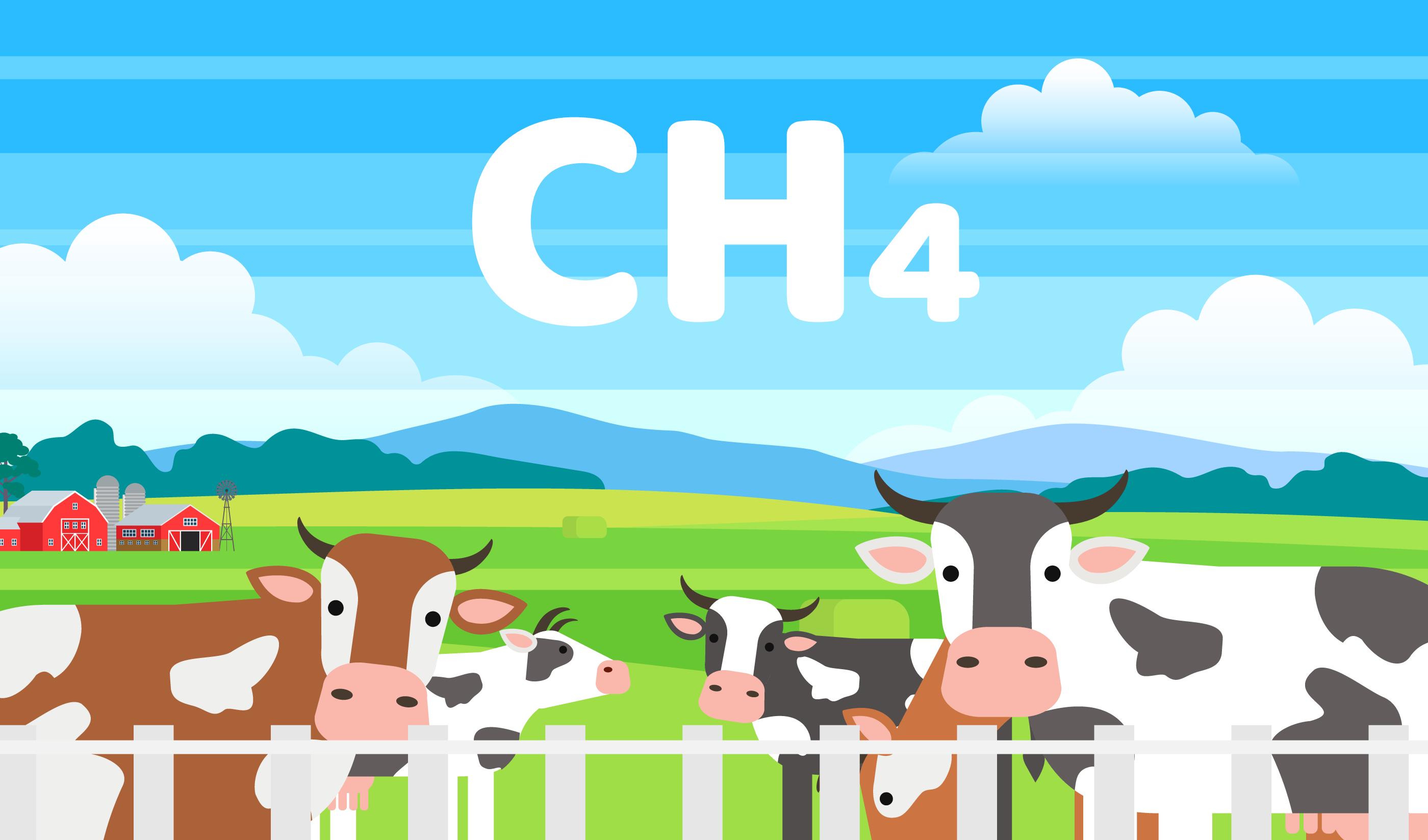Eat Lower Down the Carbon Chain
Did you know, cattle, sheep and goats “burp” methane? That’s right, during their normal digestion process they create a powerful climate pollution called methane. Methane is over 30 times more harmful than carbon dioxide. Reducing meals with red meat can make a big impact. Skipping meat during just one meal a week for a family of four is the same as taking the average car off the road for up to 1,500 miles! Eating less red meat also saves water — it takes about 1,850 gallons of water to produce just 1 pound of beef!
Your Impact
Action Steps & Tips
Introduction

Who knew? Cattle, sheep and goats all create methane gas, a powerful climate pollution, through their normal digestion process. In plain language, they “burp” methane! Methane is over 30 times more harmful than carbon dioxide. Methane is also created from the manure of animals. In total, climate pollution from cattle and other animal livestock make up nearly 5% of climate pollution globally and 4% in the U.S.
Reducing meals with red meat:
-
Reduces climate pollution. Switching one meal per week from red meat to a plant based meal for a family of four is the same as taking the average car off the road for up to 1,500 miles!
-
Saves water, land and energy. It takes about 1,850 gallons of water to produce 1 pound of beef.
-
Eating less red meat is good for your health!
Plant based foods like grains, beans, vegetables and fruits have a much lower impact, almost 20 times less than red meat. Eating less red meat and more plant based meals is an easy way to make a big impact!
1Step 1. Learn about the carbon impact of different foods
Different foods vary widely in their impact on climate change:
Red meat has the highest impact. Beef creates nearly 7 lbs of climate pollution (CO2e) for a quarter pound hamburger.
Cheese, pork and poultry are next with about a quarter to a third of the impact of red meat.
Eggs and milk have about 6 times less impact than red meat.
Nuts, grains, fruit, and vegetables all have a very low impact, over 50 times less than the impact of beef.
Plant based meals from grains, beans, vegetables and fruit have the lowest impact!
2Step 2. Consider eating less red meat and more plant based meals
Swapping red meat for a plant based meal even once a week can have a big impact!
Stay healthy. Eating less red meat can improve your long-term health. A diet with more plant-based meals can reduce your risk of heart disease, stroke and diabetes. Studies have shown that swapping one serving per day of red meat with other foods like fish, poultry, nuts, beans, low-fat dairy and whole grains has significant health benefits. Check with your doctor for more information on nutritional guidelines and what changes are best for your health.
Save money. Alternatives to red meat are less expensive and can save considerable money, particularly for plant based meals!
Make it fun! Talk with your family and brainstorm ideas for plant based meals to try. Search online or in cookbooks to find new recipes, or look for plant based alternatives at your favorite restaurant. There are many great plant-based proteins like beans and lentils, high protein grains like quinoa, and tofu. Another option is to switch to lower impact animal protein occasionally like cheese, yogurt, eggs, chicken, fish or turkey.
Do what is best for you. The choices we make with our diet are highly personal with many cultural and local community considerations. Choose what is best for you and your family.


